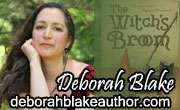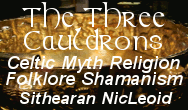Yoga Wicca Buddha
Exploring a personal, eclectic path by looking at the intersection of three great traditions.
Why I Am Not a Christian (or, Adventures in Bible-Based Reading)
Encouraged by my devout sister-in-law, I’ve just finished Surprised at Oxford, a memoir by Carolyn Weber. Attending Oxford University on scholarship in the 1990s, Ms Weber experienced a year of emotional upheaval, leading not only to finding love but to a heartfelt religious conversion. She found her answers in Evangelical Christianity and the promise of eternal life, which, in her telling, gave ultimate meaning to everything.
This was a beautifully written, poetic book, but also a frustrating one. I found myself arguing with Ms Weber. It seemed to me she conjured up a hell of meaninglessness in order to imagine a heaven of perfection. Why couldn’t she simply appreciate life? But of course I’d done the exact same thing at her age. That search for transcendence was attractive, even addictive. She and I, anxious young adults, had needed something to absorb our energy, slake our longing, and make sense of things.
But now I ask, Is the promise of heaven really worth giving up faith in the world? As a Pagan I’ve answered the last question in the negative, choosing Nature as my church and attention to her rhythms as my practice. Much of Surprised at Oxford dealt with the author’s conviction that death makes life meaningless, and therefore belief in its defeat is necessary. But death as part of life, part of Nature, is something Pagans accept, while allowing the possibility (but not the certainty) of rebirth. We honour reality by accepting and respecting its mystery.
Still, we do have to deal with the suffering that comes with reality. Here my encounter with Buddhism has offered an insight that complements my Paganism. It suggests we deal with the difficulties of life not so much by trusting in God, as by managing our emotional reactions to them.
Just as Paganism counsels humility before the mystery of the cosmos and the ways of its gods, Buddhism counsels restraint when it comes to dealing with our inner universe and its denizens. Mindfulness training suggests we feel emotions in their nakedness, without rushing to attach meaning to them. Cultivating curiosity rather than judgment towards what we feel makes us less reactive and fearful, more open to possibility
Even the deepest emotional storms can be seen, not as final truths or calls to action, but as the natural arising of energies churned up by our ever active minds and evolving bodies. Only once we stop making them into dramatic narratives starring ourselves can we really be free to respond to life objectively. That freedom is our key to acting from deeper sources of wisdom and compassion. My faith, if I have one, is in the real presence of these sources in all of us. In this Paganism and Buddhism agree--what is of value, what is divine, lies within not without.
My Pagan and Buddhist practice has been a relief from the tumult of my youth. It’s made me a a better parent, lover and friend. And that’s enough for me.
As the tote bag says, “Dharma not Drama."
Comments
-
Please login first in order for you to submit comments




















